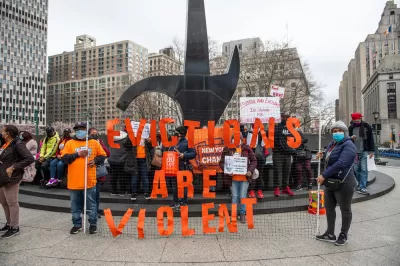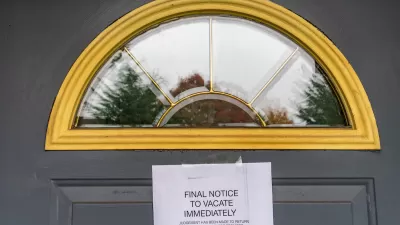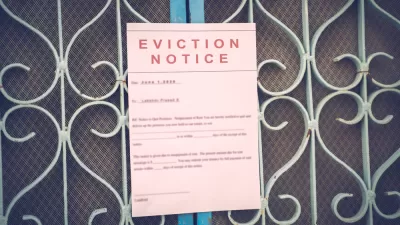On August 12, the U.S. Supreme Court issued an emergency order to block the state of New York's eviction moratorium.

"The Supreme Court issued an emergency order on Thursday blocking a New York state pandemic-issued law created to protect renters from eviction," reports Lilian Dickerson.
The Supreme Court found fault with the portion of New York's "COVID Emergency Eviction and Foreclosure Prevention Act" that "allows tenants to self-certify that they’re facing economic hardship as a result of the pandemic, and avoid eviction through this means through the end of August," according to Dickerson.
"The court’s argument for the law’s unconstitutionality was that landlords had no way to effectively challenge such claims made by a tenant."
The three justices appointed by Democratic presidents dissented from the order, saying the order was unnecessary with the law set to expire in three works from the ruling, and with the potential for harm outweighing the benefit of the order.
An attorney representing the state's landlords is quoted praising the court order. "Meanwhile, housing advocates responded by asking the state legislature to reconvene to amend the law so that it allowed for hearings on tenants’ hardship declarations, in compliance with the emergency order," writes Dickerson.
FULL STORY: Supreme Court partially blocks New York's eviction ban

Alabama: Trump Terminates Settlements for Black Communities Harmed By Raw Sewage
Trump deemed the landmark civil rights agreement “illegal DEI and environmental justice policy.”

Planetizen Federal Action Tracker
A weekly monitor of how Trump’s orders and actions are impacting planners and planning in America.

The 120 Year Old Tiny Home Villages That Sheltered San Francisco’s Earthquake Refugees
More than a century ago, San Francisco mobilized to house thousands of residents displaced by the 1906 earthquake. Could their strategy offer a model for the present?

In Both Crashes and Crime, Public Transportation is Far Safer than Driving
Contrary to popular assumptions, public transportation has far lower crash and crime rates than automobile travel. For safer communities, improve and encourage transit travel.

Report: Zoning Reforms Should Complement Nashville’s Ambitious Transit Plan
Without reform, restrictive zoning codes will limit the impact of the city’s planned transit expansion and could exclude some of the residents who depend on transit the most.

Judge Orders Release of Frozen IRA, IIJA Funding
The decision is a victory for environmental groups who charged that freezing funds for critical infrastructure and disaster response programs caused “real and irreparable harm” to communities.
Urban Design for Planners 1: Software Tools
This six-course series explores essential urban design concepts using open source software and equips planners with the tools they need to participate fully in the urban design process.
Planning for Universal Design
Learn the tools for implementing Universal Design in planning regulations.
Clanton & Associates, Inc.
Jessamine County Fiscal Court
Institute for Housing and Urban Development Studies (IHS)
City of Grandview
Harvard GSD Executive Education
Toledo-Lucas County Plan Commissions
Salt Lake City
NYU Wagner Graduate School of Public Service





























